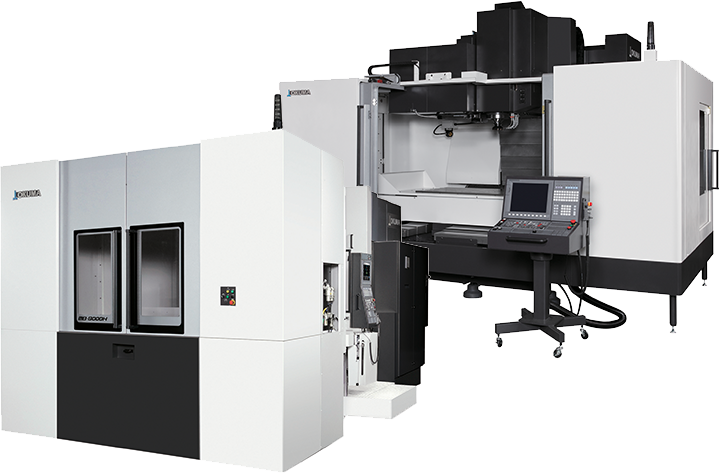It's important to understand what horizontal machining centers and vertical machining centers bring to the table when it comes to manufacturing your parts. What makes one better than the other when it comes to your specific use case? This whitepaper delves into some of the important factors of this decision.
For example, a vertical machining center (VMC) typically has a lower initial purchase price than a horizontal machining center (HMC). So if your shop specializes in machining large, flat workpieces that require a single operation, a quality Okuma VMC may be an excellent option. However, if you often work on various sizes of prismatic parts, an HMC is a better choice.
That’s where looking at the overall cost of operation comes in. You see, when it comes to machining multi-sided parts, a HMC can save you considerable time and money. How? By eliminating much of the part handling associated with VMCs. In fact a number of studies, including those by The University of Michigan and American Machinist, find that the average VMC utilization, as measured by spindle run time, is only 25% versus 85% for HMCs.
Machining a six-sided part, for example, on a vertical machining center typically requires the operator to move the part seven or more times – in and out, and from fixture-to-fixture.
A horizontal machining center will handle a six-sided part with no more than three touches by the operator. And, as we know, in a manufacturing world in which lean translates to increased efficiency and profitability, the fewer times a part is touched, the better. Moreover, the part movements are all made within the machining cycle, so no spindle time is wasted.

In most instances we find that, because of its versatility, one HMC replaces four VMCs. That means one operator in-2.0 VMC VS. HMC stead of four, so your operators can be far more productive while you reduce labor costs per part. It also means paying for fewer fixtures, and increasing throughput thanks to less setup time and greater spindle utilization. Plus, with reduced part handling there’s less room for error, so it’s easier to maintain product quality.
For all of these reasons, it’s worth taking a hard look at your applications and consider choosing a horizontal machining center for your next productivity tool. The manufacturing technology experts at Gosiger can help you find the right CNC machine for your unique operation. They have all of the facts on Okuma HMCs for general machining, heavy machining and high speed machining needs.
It's important to understand what horizontal machining centers and vertical machining centers bring to the table when it comes to manufacturing your parts. What makes one better than the other when it comes to your specific use case? This whitepaper delves into some of the important factors of this decision.
